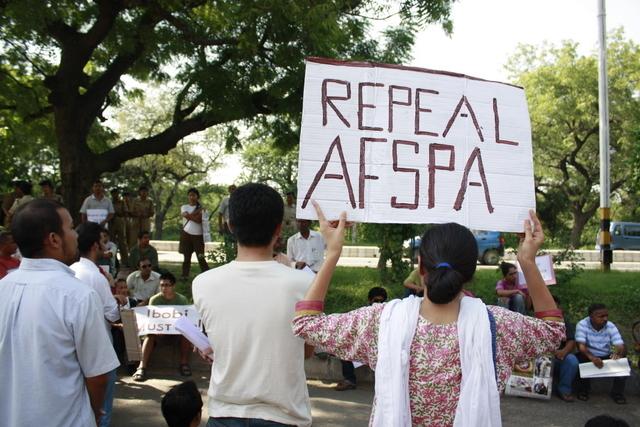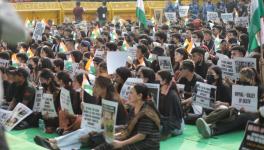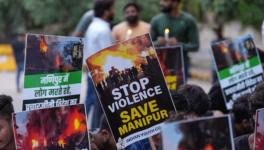Can a Passing Mention Demoralise the Armed Forces?

A Division Bench of the Supreme Court consisting of Justice Madan B Lokur and Justice UU Lalit dismissed a petition for their recusal from overseeing the mandamus hearings of the Manipur Fake Encounter cases. The petitioners were members of the Manipur Police, and were supported by the Government of India as well as over 300 Armed Forces personnel. The petition had been filed against the Judges for statements attributed to them, and widely reported in the media wherein they referred to the perpetrators of the alleged fake encounters as ‘murderers’. The petitioners alleged that the statements would prejudice the Central Bureau of Investigation (CBI) headed Special Investigation Team (SIT) constituted to examine 1,528 alleged fake encounters. Additionally, the petitioners also alleged that the statements of the Judges would severely affect the morale of the Armed Forces.
The Court had dismissed both arguments as the investigation was being carried out by the SIT, and the Court’s role was only to monitor its progress. As far as demoralising the Armed Forces, the Court observed:
“It was also submitted and this submission was supported by the learned Attorney General that the Indian Army, the paramilitary forces and the Manipur Police have been demoralised by the observations made by this Court. This is a rather overbroad submission. In any event, in our opinion, it should be clear to everyone that officers and personnel of the Indian Army, paramilitary forces and the State Police are made of much sterner stuff than is sought to be projected and they can hardly be demoralised by observations said to have been made by anybody.”
Also Read | Sanction, Prosecution, AFSPA and Victims
What is the basis for claiming demoralisation?
From the Armed Forces’ perspective, one would have to return to the petition filed to quash a First Information Report (FIR) for an incident when civilians were fired upon by the Army in Kashmir. In this petition, Lieutenant Colonel Karamveer Singh, the father of the accused officer, Major Aditya Kumar, not only sought for the FIR to be quashed, but essentially prayed for a disastrous interpretation of section 7 of the Armed Forces (Special Powers) Act (AFSPA). Section 7 of AFSPA bars suits, prosecution or legal proceeding from being instituted against Armed Forces personnel operating in areas where AFSPA is in force without sanction from the government. Lieutenant Colonel Singh’s petition interprets this to mean registering an FIR too requires sanction. From this, one could conclude that the Armed Forces believe that they require greater immunity from prosecution than is ordinarily provided under a law that has already been termed ‘draconian’.
If this position were to be accepted, then it would imply that the basic record of what transpired in an ‘incident’ involving service weapons being discharged would be prevented. Rather than simply scuttling prosecution – the current understanding is that the section requires sanction from the government for prosecution – this new interpretation goes beyond blocking the investigation.
Also Read | Will the Army’s Strategic ‘Recalibration’ Heighten Tension in NE?
Why go beyond blocking an investigation?
The Rome Statute, the basis for the International Criminal Court and international criminal law under Article 29 states that “[t]he crimes within the jurisdiction of the Court shall not be subject to any statute of limitations.” This implies that there is no time limit on when a case can be taken up provided the matter relates to genocide, crimes against humanity, war crimes and aggression, as specified under Article 6. Therefore, if a record relating to any of these crimes exists, it can place not only the Army, but the government in jeopardy. However, denying investigation may be an overkill since India is not a signatory to the Rome Statute.
What may in fact be a motivating factor for the Armed Forces personnel is not the international implications of their conduct, but rather, what happens when they are out of uniform. While in uniform, they receive the full backing of the top brass and the government. However, upon retirement, they have to run from pillar to post for their pensions. This implies that the top brass forgets about them when they retire. The recent Court Martial in the 1994 Dangari fake encounter case is one such example. Major General AK Lal, who was among those convicted, had already been dishonourably discharged in 2008 for sexual harassment. According to The Times of India, despite the dishonourable discharge, he enjoyed all the pension benefits. It thus appears that he was thrown under the bus. This is what is ‘demoralising’ the Army. If a record of a misdeed exists, it may haunt them for the rest of their lives post retirement.
At this point, it may be recalled that last week statements were made by the state government and Army officials, to the effect that AFSPA cannot be revoked from Manipur, as the situation is not right. Unlike in the case of Kashmir – where civilian unrest can be blamed on the neighbour next-door – the case of Manipur poses a more difficult situation.
Also Read | Army Court Martial in Assam Sentences 7 to Life Imprisonment
Manipur and the AFSPA conundrum
If one were to recall the Army personnel’s’ petitions against the SIT investigation, one part of it stated that “[t]ime and again the personnel of the Armed Forces of India have to carry out various operations in inhospitable terrain, weather and within hostile local population. The errant behaviour on the part of the people of the State of Manipur is directly proportional to the lawlessness and absolute disregard to the safety and protection of the Armed Forces functioning in the State.” This then raises an ugly question regarding why should the local population be hostile towards the Armed Forces?
Manipur’s Meitei-based insurgency began roughly in the 1970s, around 20 to 30 years after the erstwhile Constitutional Monarchy was ‘merged’ with the Indian Union. It may be surprising to some, but, Manipur had a robust Left movement with linkages to the undivided Communist Party of India (CPI). The Left movement even played a role in framing the Kingdom’s Constitution through which feudalism was abolished. In September 1949, the King of Manipur, Bodhchandra Singh was forcibly placed under house arrest in Shillong, and made to sign the Merger Agreement. However, under Manipur’s Constitution, the decision would have to be ratified by the elected representatives. Instead, the Indian Army moved into the newly acquired territory, and the Parliament was abolished. The Communist Party of Manipur was dissected with some members being forced to join the CPI.
This is the basis on which the Meitei armed political groups oppose what they describe as the ‘illegal occupation’ of Manipur.
From this, one can see that irrespective of how many troops are poured into Manipur, the problem is political, and therefore the solution should be too. RK Meghen, the leader of the United National Liberation Front (UNLF) – the oldest Valley-based armed political group – who is currently lodged in Guwahati Jail serving a prison sentence, had on several occasions proposed a political solution: organise a plebiscite monitored and conducted by the United Nations and the UNLF will respect whatever its outcome will be. Meghen is such a respected figure among the Meitei armed groups that Corcom – the Coordination Committee comprising of the Meitei armed groups – declined officially joining the United Liberation Front of Western Southeast Asia (UNLFW), as they wanted him to head the grouping.
However, considering that till date, the plebiscite has not yet been held in Kashmir, as the ‘situation is not right’, it is unlikely that this will become an option in the near future.
This points to a difficult position for the Government of India. For decades, they have been using a force whose primary duty was to fight a no-holds-barred war against external aggression for dealing with a problem that India has been telling the world is an internal issue. The Army too is in a difficult position, as they are controlled by the civilian government, and hence will deploy where they are ordered. Therefore, the root of the AFSPA conundrum is that the Armed Forces have been deployed to tackle a political problem. On the one hand, in counter-insurgency operations, the role of the Armed Forces is to force the parties to the negotiation table. However, considering that AFSPA has not produced the desired results after almost three decades in Manipur, perhaps honest negotiations would be a better option.
Get the latest reports & analysis with people's perspective on Protests, movements & deep analytical videos, discussions of the current affairs in your Telegram app. Subscribe to NewsClick's Telegram channel & get Real-Time updates on stories, as they get published on our website.























